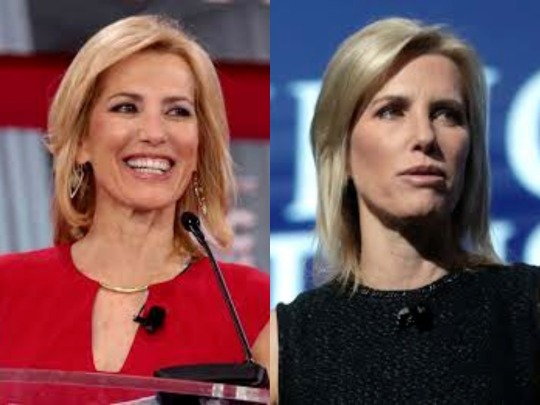#EconomicEquity
Text
youtube
#ImaniVsSchwab#DavosDebate#EconomicReform#GlobalJustice#LeadershipChallenge#SocialImpact#WorldEconomicForum#CorporateAccountability#ChangeMakers#EconomicEquity#SocialJustice#GlobalIssues#PoliticalSatire#GlobalGovernance#EconomicPolicy#DavosForum#WEFSummit#EconomicDiscussion#PublicPolicy#GlobalLeaders#youtube#small youtuber#online business#entrepreneur#ecommerce#branding#marketing#accounting#bookkeeping#digitalmarketing
0 notes
Text
The False Promise of Comparative Advantage: Unveiling the Flaws of Ricardo’s Theory in the Global South
The theory of comparative advantage, proposed by David Ricardo in the 19th century, has established itself as one of the cornerstones of classical economics. Its elegant logic suggested that free trade, driven by specialization in areas of comparative advantage, would lead to mutual prosperity among nations. However, the reality of growing disparities between the Global North and South exposes the failures of this theory in predicting the profound inequalities that would unfold. This essay unveils the reasons behind this failure, shedding light on the contextual factors that Ricardo’s theory failed to capture.
Disregard for Power Asymmetries
The theory of comparative advantage operates in an idealized scenario of equitable trade relations. However, the reality of international trade is permeated by significant power asymmetries between developed and developing countries. Nations in the Global North, with greater capital, technology, and political influence, often dominate markets, imposing unfavorable terms of trade on countries in the South.
Ignorance of Trade Barriers
Ricardo’s theory assumes the free circulation of goods and services between nations. In practice, countries in the Global South face a series of trade barriers, such as tariffs, quotas, and agricultural subsidies imposed by developed countries. These barriers restrict the access of Southern countries to international markets, limiting their opportunities to benefit from trade.
Underestimation of Multinational Exploitation
The theory of comparative advantage fails to consider the role of multinational corporations in perpetuating inequalities. Multinationals often exploit the natural resources and cheap labor of countries in the South, repatriating substantial profits while contributing minimally to local development. This dynamic exacerbates the disparities between nations.
Disregard for Structural Inequalities
Ricardo’s theory does not account for the deep-rooted structural inequalities that characterize many countries in the Global South. Factors such as historical colonization, limited access to education and healthcare, and poor infrastructure prevent these countries from competing on an equal footing in the international market.
Denial of Commodity Dependence
The theory of comparative advantage encourages specialization in areas of higher productivity. However, many countries in the Global South find themselves trapped in a cycle of dependence on the export of commodities, whose prices fluctuate in the international market, rendering them vulnerable to external shocks and perpetuating poverty.
Conclusion
The theory of comparative advantage, while contributing to the understanding of international trade, fails to explain the complex dynamics that have generated the growing inequalities between the Global North and South. By ignoring power asymmetries, trade barriers, multinational exploitation, structural inequalities, and commodity dependence, Ricardo’s theory presents a simplistic and inadequate vision of the realities of international trade.
To overcome global disparities, it is necessary to go beyond the simplistic logic of comparative advantage and consider policies that promote fair trade, economic diversification, institutional development, poverty reduction, and income redistribution. Only through a comprehensive and contextualized approach can we achieve a more equitable and prosperous future for all.
elaborado com inteligência artificial por um humano nativo do Sul Global
#ComparativeAdvantage#GlobalInequalities#InternationalTrade#EconomicTheory#DavidRicardo#GlobalDevelopment#GlobalSouthChallenges#EconomicEquity#StructuralInequality#PowerAsymmetries#Globalization#ClassicalEconomicTheory
0 notes
Text
#leftist#unionstrong#capitalismsucks#bernie sanders#livingwage#raisethewage#fightfor15#justice democrats#democratic socialism#taxtherich#socialist politics#socialism#voting rights#fuck republicans#fuck democrats#feminist#medicare for all#economicequity#anticapitalist#anti imperialism#democracy
0 notes
Text
An open letter to the U.S. Congress
Pass President Biden’s budget!
890 so far! Help us get to 1,000 signers!
At a time when working families are having trouble affording everything from healthcare to education to housing to food, we need a budget that lowers costs for millions of households―paid for by making the wealthy and big corporations pay their fair share.
President Biden’s FY2025 budget would expand the Child Tax Credit, expand Affordable Care Act subsidies to help millions of people afford healthcare in states that haven’t expanded Medicaid, invest in free pre-K for 2 million kids, implement a national paid family and medical leave program, provide free community college, expand Social Security’s modest benefits, and more.
It would also reduce the national debt by nearly $3 trillion.
He does this by raising the corporate tax rate, implementing a 25% tax on the wealth gains of billionaires and ultra-millionaires, ending tax breaks for excessive CEO pay, closing loopholes that encourage corporations to ship jobs and profits offshore, and much more.
I urge Congress to pass President Biden’s FY2025 budget to invest in working people and our future. By wide margins, the American people think that the wealthy and large profitable corporations should pay more of their fair share in taxes. So endorsing the president’s budget is not only good policy, it’s good politics. Thanks!
▶ Created on March 15 by Jess Craven
📱 Text SIGN PULPMC to 50409
🤯 Liked it? Text FOLLOW JESSCRAVEN101 to 50409
#JESSCRAVEN101#PULPMC#resistbot#open letter#petition#USCongress#PresidentBiden#BidenBudget#FY2025Budget#WorkingFamilies#AffordableHousing#Healthcare#Education#ChildTaxCredit#AffordableCareAct#MedicaidExpansion#PreK#PaidFamilyLeave#CommunityCollege#SocialSecurity#NationalDebt#CorporateTax#WealthTax#TaxFairness#TaxReform#TaxPolicy#IncomeInequality#EconomicEquality#FairShare#BudgetPriorities
2 notes
·
View notes
Video
youtube
How to Get Rich? Let Your Wife Handle Your Investments as Women Are Better At It
#youtube#WomenInInvesting#FinancialEmpowerment#LongTermGains#InvestmentStrategies#EconomicEquality#getrich#make money tips#ownyourmoney#personalfinance#saveinvest#wealthmindset#financedragon
0 notes
Text
Why Healthcare Jobs Don't Pay Enough (The Value Paradox)
youtube
Unlock the truth behind the Healthcare Jobs Value Paradox in this eye-opening video! 🏥💰 Discover why these crucial roles don't get the pay they deserve and the impact it has on the industry. 🔍 Don't miss out on this insightful analysis—join the conversation now!
#HealthcareJobs#SalaryParadox#ValueInHealthcare#JobCompensation#HealthcareIndustry#WorkforceChallenges#EconomicEquality#CareerInsights#WageDisparity#JobMarketTrends#Youtube
0 notes
Text
Liberating Street Vendors: Paving the Path to Inclusive Growth in India
In the bustling streets of rural and urban India, small-time shopkeepers and vendors, the unsung heroes of our economy, stand as resilient pillars, providing essential goods and services to the masses. Yet, they often find themselves ensnared in a relentless cycle of high-interest borrowing, which shackles their progress and perpetuates economic invisibility. These vendors secure loans at…

View On WordPress
0 notes
Text
The Cornerstones of a Healthy Society: Legal and Financial Literacy
In today's ever-evolving world, the need for a well-rounded education extends far beyond traditional subjects. While math, science, and language arts undoubtedly play pivotal roles, there are two often-overlooked pillars that are equally vital for a thriving society: legal and financial literacy.
The Foundations of Legal Literacy:
Legal literacy empowers individuals with the knowledge to navigate the complexities of the legal system. Here's why it's indispensable:
1. Protection of Rights: Understanding our legal rights and responsibilities is crucial for safeguarding individual liberties and ensuring fair treatment under the law. Legal literacy empowers citizens to protect their rights and seek justice when needed.
2. Conflict Resolution: In a world where disagreements are inevitable, legal literacy equips individuals with skills in conflict resolution and negotiation. It promotes peaceful dialogue and reduces the likelihood of disputes escalating into conflict.
3. Informed Citizenship: A well-informed citizenry is the bedrock of a healthy democracy. Legal literacy enables individuals to engage in informed civic participation, advocate for justice, and hold those in power accountable.
The Building Blocks of Financial Literacy:
Financial literacy, on the other hand, is the cornerstone of financial well-being and economic equality. Consider these reasons for its importance:
1. Economic Stability: Sound financial knowledge is essential for managing one's finances wisely, avoiding debt traps, and planning for the future. It promotes personal economic stability, regardless of one's income level.
2. Reducing Economic Disparities: Financial literacy has the potential to bridge the economic divide. It provides individuals with the tools to make informed decisions about budgeting, saving, investing, and wealth accumulation.
3. Empowering Entrepreneurs: Entrepreneurship is a driving force behind economic growth and job creation. Financial literacy empowers individuals to start and manage businesses successfully, contributing to a thriving economy.
4. Financial Resilience: In times of economic hardship, individuals with financial literacy are better equipped to weather financial crises and make informed decisions about their financial priorities.
Healing Divides in Society:
One often-overlooked benefit of legal and financial literacy is their potential to bridge ideological divides that plague our society. In an era of polarized opinions and deep-seated beliefs, these subjects offer a neutral ground for constructive dialogue.
Legal and financial literacy classrooms are places where facts and knowledge prevail over unfounded beliefs. They provide a safe space for individuals with diverse perspectives to engage in meaningful discussions about rights, responsibilities, and financial principles.
In essence, legal and financial literacy education is not just about facts and figures; it's about creating informed, empowered citizens who can contribute to a healthier, more equitable society.
Legal and financial literacy are not mere subjects to be taught in schools; they are the bedrock of a thriving, harmonious society. They empower individuals, protect rights, bridge economic disparities, and foster informed citizenship. Moreover, they serve as a remedy to ideological divisions by promoting rational, fact-based discussions.
As we strive for a brighter future, let us recognize the pivotal role of legal and financial literacy in building a society where individuals are equipped to succeed and contribute to the common good. Their importance cannot be overstated; they are the keys to a healthier, more prosperous, and more united world.
#LegalLiteracy#FinancialLiteracy#EducationMatters#Empowerment#InformedCitizens#EconomicEquality#ConflictResolution#FinancialWellness#CivicEngagement#BridgingDivides#SocietalHealth#LifeSkills#EmpoweringYouth#FinancialEducation#LegalRights
0 notes
Text
Empowering Minority Voters: Unveiling the Democratic Party's Shortcomings | MinorityVoters | DemocraticParty | PoliticalAwareness | PoliticalShifts | SocialProgress | EconomicEquality | CommunityDevelopment | PoliticalAnalysis | PolicyFailures | VoterEngagement | ElectionInsights | DiversityMatters | PoliticalReform | EmpoweringCommunities | InformedVoting | MinorityRepresentation | RedefiningPolitics | PoliticalAccountability | BreakingBarriers | InclusivePolicies |
In a recent segment, renowned television host Laura Ingraham shed light on a noteworthy political shift occurring among minority voters in the United States. Ingraham’s analysis, featured on Fox News, explored the emerging trend of these voters beginning to recognize the extent of their losses by aligning themselves with the Democratic Party.
Ingraham highlighted that more minority voters are…

View On WordPress
#BreakingBarriers#CommunityDevelopment#DemocraticParty#DiversityMatters#EconomicEquality#ElectionInsights#EmpoweringCommunities#InclusivePolicies#InformedVoting#MinorityRepresentation#MinorityVoters#PolicyFailures#PoliticalAccountability#PoliticalAnalysis#PoliticalAwareness#PoliticalReform#PoliticalShifts#RedefiningPolitics#SocialProgress#VoterEngagement
0 notes
Text
Faith in Action: Upholding Justice Amidst Economic Inequality
Faith in Action: Upholding Justice Amidst Economic Inequality
In the eyes of the Lord, every soul deserves dignity and opportunity. Yet in the world we inhabit, the burden of rising costs weighs heavy on the shoulders of the many, while the few thrive in abundance. Let us not forget our duty to uplift the downtrodden, to advocate for justice, and to challenge systems of greed that hinder the true flourishing of all God's children.
#FaithInAction #JusticeForAll #EconomicEquality #ChristianEthics #DignityForAll #SocialJustice #GodsChildren #InequalityChallenge

0 notes
Text
💼💔✊ Listen up, fellow wanderers of the digital domain! Today, let's talk about the wild ride that is capitalism and its perils. Picture this: a cosmic carnival where the rich get richer, the poor get poorer, and the middle class feels like it's stuck on a never-ending rollercoaster of economic uncertainty.
Capitalism, with its relentless pursuit of profit and endless competition, can feel like a double-edged sword. On one hand, it fuels innovation, drives progress, and offers opportunities for growth. But on the flip side, it breeds inequality, exploits labor, and leaves many stranded in the dust of economic disparity.
We've all seen the consequences: soaring CEO salaries while workers struggle to make ends meet, corporate greed that puts profit over people, and a relentless consumer culture that leaves us chasing after material wealth like cosmic gold.
But fear not, my fellow cosmic travelers, for there's hope on the horizon! We can harness the power of collective action, advocate for fair wages, and push for policies that prioritize people over profits. Let's challenge the status quo, amplify marginalized voices, and strive for a more equitable economic system that benefits us all.
So, as we navigate the turbulent waters of capitalism, let's remember to stay vigilant, stay informed, and stand in solidarity against the perils of greed and inequality. Together, we can build a future where everyone has a seat at the cosmic table of prosperity. 🌟💪🌍 #CapitalismCritique #EconomicEquality #SocialJusticeJourney #CosmicConsciousness #SolidaritySquad
0 notes
Text
youtube
#ImaniVsSchwab#GlobalEconomicDebate#SocialJustice#LeadershipChallenge#EconomicEquity#DavosDiscussion#DavosDebate#GlobalEconomics#youtube#small youtuber#united nations#Youtube
0 notes
Text
Navigating the Crossroads of Injustice and Catastrophe: A Call for Global Solidarity
In the tumultuous arena of global affairs, two intertwined challenges stand as stark reminders of the urgent need for international cooperation and solidarity: the pervasiveness of unfair trade practices and the escalating threat of climate disasters. These twin perils disproportionately impact developing nations, casting a long shadow over their economic prospects and social well-being.
Unfair trade practices, such as dumping and predatory pricing, have long been a source of economic hardship for developing countries. These predatory tactics, often employed by powerful nations, involve flooding markets with goods below production cost, stifling local industries and undermining fair competition. The consequences are devastating, leading to job losses, economic instability, and a deepening sense of vulnerability among developing nations.
The specter of climate disasters further exacerbates the plight of developing countries. Hurricanes, droughts, and other extreme weather events wreak havoc on infrastructure, disrupt livelihoods, and exacerbate food insecurity. These climate-induced crises compound the economic woes caused by unfair trade practices, creating a vicious cycle of poverty and despair.
In the face of these interconnected challenges, the international community must rise to the occasion and adopt a comprehensive, collaborative approach. Strengthening existing trade rules and establishing more effective mechanisms to combat unfair trade practices are crucial steps in ensuring a level playing field for all nations. Additionally, prioritizing support and assistance for countries affected by climate disasters is essential to enable them to rebuild and adapt to a rapidly changing climate.
However, addressing these issues demands a multifaceted approach that extends beyond trade and environmental policies. Investing in clean energy, sustainable infrastructure, and green technologies is paramount to fostering sustainable development and reducing our collective carbon footprint. Moreover, promoting policies that encourage inclusive growth and social justice is essential to ensure that the benefits of progress are shared equitably among all members of society.
The path forward is not without its challenges. Navigating the complexities of international trade and climate change requires a delicate balance of diplomacy, cooperation, and unwavering commitment to shared values. Yet, the stakes are too high to ignore. The well-being of millions, the future of our planet, and the very fabric of global order depend on our collective ability to rise to this challenge.
In conclusion, tackling unfair trade practices and climate disasters is not merely an economic or environmental imperative; it is a moral obligation that demands our collective action. By forging a united front, guided by principles of solidarity and shared responsibility, we can pave the way for a more just, sustainable, and prosperous future for all. Only through collaboration and unwavering commitment can we transform these challenges into opportunities to build a better world for generations to come.
elaborado com inteligência artificial por um humano
#FairTrade hashtag#ClimateJustice hashtag#GlobalSolidarity hashtag#SustainableDevelopment hashtag#EconomicEquality hashtag#TradeEquity hashtag#ClimateResilience hashtag#InternationalCooperation hashtag#SocialJustice hashtag#EnvironmentalSustainability hashtag#TradeFairness hashtag#ClimateAdaptation hashtag#SolidarityInAction hashtag#EconomicJustice hashtag#TradeReform hashtag#ClimateAction hashtag#GlobalPartnerships hashtag#BuildingBackBetter hashtag#TradeJustice hashtag#ClimateCrisis
0 notes
Video
youtube
How Right-Wing Hatred Of The LGBTQ Community Led To The Colorado Tragedy #Shorts #TYT #News #Government #Politics #CenkUyger #AnaKasparian #LGBTQ #LGBTQCommunity #Pride #Inclusion #TalkingPoints #MidTerms #Campaign #Policy #CorporateGreed #EconomicEquality #CultureWar #Surprise #Colorado by The Young Turks
0 notes
Text
An open letter to the U.S. Congress
Expand Social Security by Taxing the Rich!
1,122 so far! Help us get to 2,000 signers!
If nothing is done to strengthen Social Security’s finances, starting in 2034, Social Security will only be able to pay roughly 80% of benefits owed. Thankfully, there’s a fiscally responsible easy solution to this future shortfall that doesn’t impoverish seniors or their families: Make the wealthy pay their fair share! Senator Bernie Sanders has introduced the Social Security Expansion Act of 2023, which would increase benefits by $2,400, extend the lifespan of the Trust Fund by 75 years and do much more to solidify this bedrock of working-class prosperity. And, it’s completely paid for by scrapping the payroll tax cap on incomes over $250,000―meaning that millionaires and billionaires would finally start paying more of their fair share. In the House, Rep. John Larson has previously introduced the Social Security 2100 Act: A Sacred Trust, which would affect just the top 0.4% of wage earners. It would fulfill the promise of our Social Security system by improving benefits for millions of seniors living in poverty and extending the lifespan of the Trust Fund―once again, paid for by making the wealthy pay more of their fair share. Instead of Republican proposals to raise the retirement age or directly cut benefits, Congress needs to scrap the Social Security payroll tax cap on the wealthy. That means that while working people won’t pay a dime more in Social Security contributions, millionaires and billionaires will finally be paying their fair share all year long. Good!
▶ Created on January 11 by Jess Craven
📱 Text SIGN PCTGGM to 50409
🤯 Liked it? Text FOLLOW JESSCRAVEN101 to 50409
#An open letter to the U.S. Congress#Expand Social Security by Taxing the Rich!#starting in 2034#Rep. John Larson#millionaires and billionaires#▶ Created on January 11 by Jess Craven#📱 Text SIGN PCTGGM to 50409#🤯 Liked it? Text FOLLOW JESSCRAVEN101 to 50409#JESSCRAVEN101#PCTGGM#resistbot#SocialSecurity#TaxTheRich#BernieSanders#JohnLarson#SocialSecurityExpansionAct#SocialSecurity2100Act#IncomeInequality#WealthTax#EconomicJustice#FairShare#FiscalResponsibility#SocialSafetyNet#RetirementSecurity#IncomeEquality#ProgressivePolicy#EconomicEquality#Millionaires#Billionaires#PayrollTax
1 note
·
View note
Photo

my Mitra messaged me saying that does he need to have non Sustainable lifestyle to make money? Later he can change to sustainable lifestyle. Answer is you can be more rich if you live sustainably since birth.❤️😅 #richlifestyles #sustainabkelifestyle #poorlife #shareandcare #allhavesamerights #equity #socialequity #economicequity (at Ecoplanetfarm) https://www.instagram.com/p/COIdnBJpsCN/?igshid=c9czx200uy9m
#richlifestyles#sustainabkelifestyle#poorlife#shareandcare#allhavesamerights#equity#socialequity#economicequity
0 notes